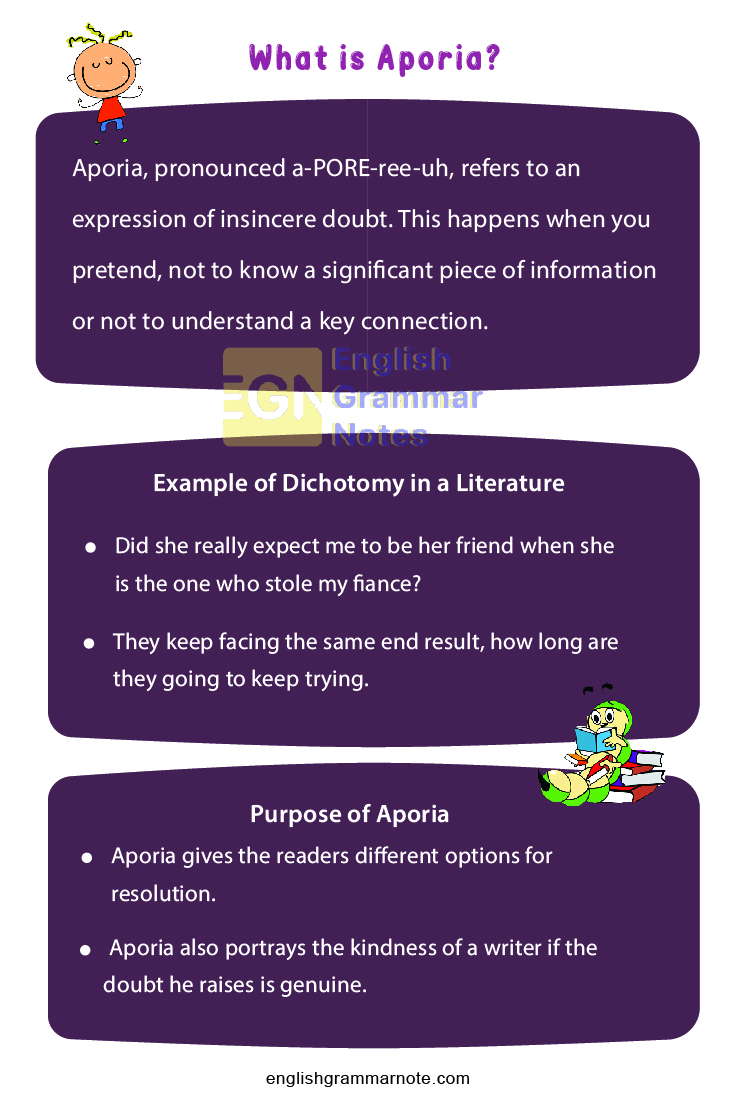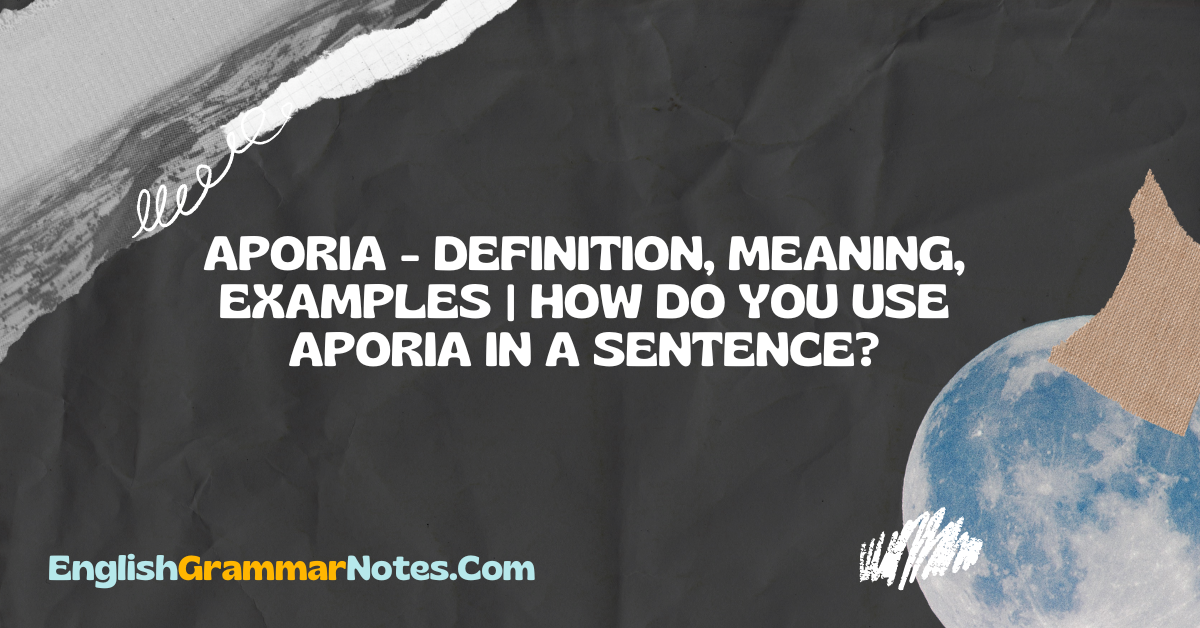Aporia is a commonly used figure of speech. Aporia is also known by the name dubitation. It is a figure of speech most often used in philosophy where it relates to philosophical questions and concepts that have no obvious answers. Ancient scholars like Plato and Socrates were the chief practitioners of aporia. In this article, you will be introduced to all the essential information about the literary device aporia including its definition, common examples, its significance, etc.
- What is Aporia?
- Types of Aporia
- Aporia Examples
- Purpose of Aporia
- Aporia Vs Aphorism
- What is Aporia?
- What are the two types of aporia?
- Distinguish between aporia and aphorism?
- Give some examples of aporia?
What is Aporia?
Aporia, pronounced a-PORE-ree-uh, refers to an expression of insincere doubt. This happens when you pretend, not to know a significant piece of information or not to understand a key connection. After giving rise to such a doubt you can solve the same or leave it open while giving certain hints. Aporia can either take the form of a question or a statement.
Types of Aporia
There are basically two types of Aporia. Both of these come under arguments, while one deals with advancing an argument, the other maintains the tone.
Argumental Aporia: Arguments respond to the doubts raised. An argument refers to statements that respond to the reader’s doubts, and also responds to any further doubts that may arise after the statement is said.
Tonal Aporia: At times you may want to soften the blow of the idea you intend to present. By converting what you intend to say to doubt or a question, you actually soften its impact on readers. However, make use of tonal aporia only when the situation demands a softer approach.
Explore Old to New English Grammar Rules by our English Grammar Notes and apply them in your daily sentences for effective communication with your friends, clients, colleagues, etc.
Aporia Examples
Given below are some instances that make use of the figure of speech, aporia.
- Did she really expect me to be her friend when she is the one who stole my fiance?
- Do you actually assume that your sibling respects you when he keeps speaking about you behind your back?
- They keep facing the same end result, how long are they going to keep trying.
- They are in this together, is the opinion of some, while many others say that they are better alone, but who do you think is right?
- I really wanted to go into the jungle but it was so dark and threatening, did they really feel that it was a great idea?
- I am so tired of getting you different things, when will you be satisfied?
- My sister is so fussy, will she ever be happy with what she has?
Purpose of Aporia
The use of aporia has the following benefits:
- Aporia gives the readers different options for resolution.
- Aporia also portrays the kindness of a writer if the doubt he raises is genuine.
- Provides guidance to the audience as to what you intend to say if the doubt is insincere.
- On the whole, the readers are given the chance to analyze and judge the situation.
Read More:

Aporia Vs Aphorism
Like Aporia, aphorisms are also used to express doubt. However, the doubt is raised in relation to a specific term. Even though both of these terms are often confused for each other, aporia has nothing to do with aphorism.
FAQs on Aporia
Aporia, pronounced a-PORE-ree-uh, refers to an expression of insincere doubt. This happens when you pretend, not to know a significant piece of information or not to understand a key connection.
2. What are the two types of aporia?
The two types of aporia are; argumental aporia and tonal aporia. Both of these come under arguments, while one deals with advancing an argument, the other maintains the tone.
3. Distinguish between aporia and aphorism?
Aphorisms are also used to express doubt. However, the doubt is raised in relation to a specific term.
4. Give some examples of aporia?
Some examples of aporia include
- They keep facing the same end result, how long are they going to keep trying.
- They are in this together, is the opinion of some, while many others say that they are better alone, but who do you think is right?
Conclusion
Aporia is a figure of speech that can be used to express doubt or uncertainty. The use of this figure of speech tempts the readers to reevaluate a situation. Aporia is a device that is commonly used in formal writing where it is employed to advance or express an argument. It is a common figure of speech used in essays, poetry as well as prose.
